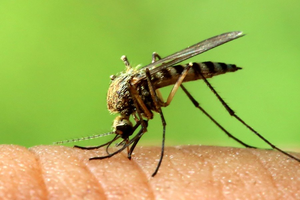Google’s next startup: M is for Mosquito
Alphabet, Google’s new holding company and moonshot incubator, may soon take a crack at a longtime obsession of biological researchers: Deploying genetically modified mosquitoes to fight disease.
 That’s a particular interest of Linus Upson, a Google engineering VP who co-created the Chrome browser but left that team last October.
That’s a particular interest of Linus Upson, a Google engineering VP who co-created the Chrome browser but left that team last October.
Linus Upson says he wants to start a project that would genetically engineer mosquito's to help eradicate diseases like malaria and dengue fever. This trial was conducted by the biotech company Oxitec, who genetically modified male mosquitoes to pass on a specific mutation to their offspring — one that kills them before they are able to reproduce or pass on the disease. This would not be the first effort of this kind, even in the tech world. The Bill and Melinda Gates Foundation has previously funded research in a similar vein.
But perhaps now is the time for a push by Google. A year-long trial in Brazil recently used genetically modified mosquitoes to reduce the population of dengue-carrying insects by 95 percent. Dengue fever is a horrifically painful illness which is almost impossible to treat.
The scale of the health issue is massive, suiting Alphabet’s aim: Around 3.2 billion people are at risk of malaria, which caused an estimated half a million deaths in 2013, according to the World Health Organization. An estimated 390 million people are infected with dengue fever yearly.
With Google’s resources, especially under the new Alphabet operating structure, this success could be built on. Google’s split means that these types of “future” projects will take place under the Alphabet umbrella but not in Google proper. George Church, a Harvard University geneticist and molecular engineer, says he's discussed the project with not only Upson, but also Larry Page himself.
Upson told his coworkers that he wanted to work on the project within Google because of the capital requirements, and the unlikelihood that it would generate a quick return. However the project is reportedly still in the planning phase.
Axarhöfði 14,
110 Reykjavik, Iceland














